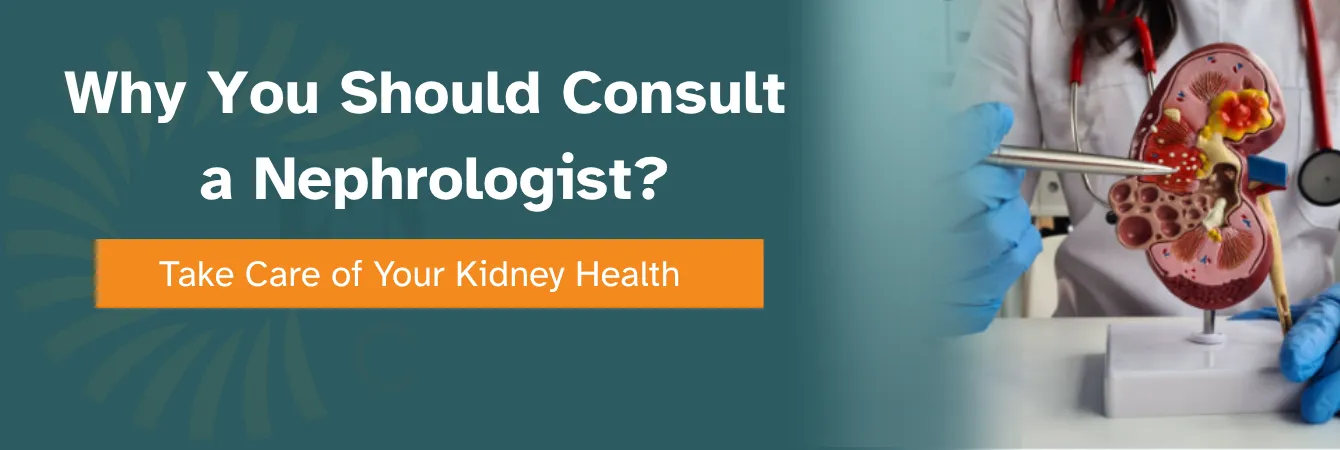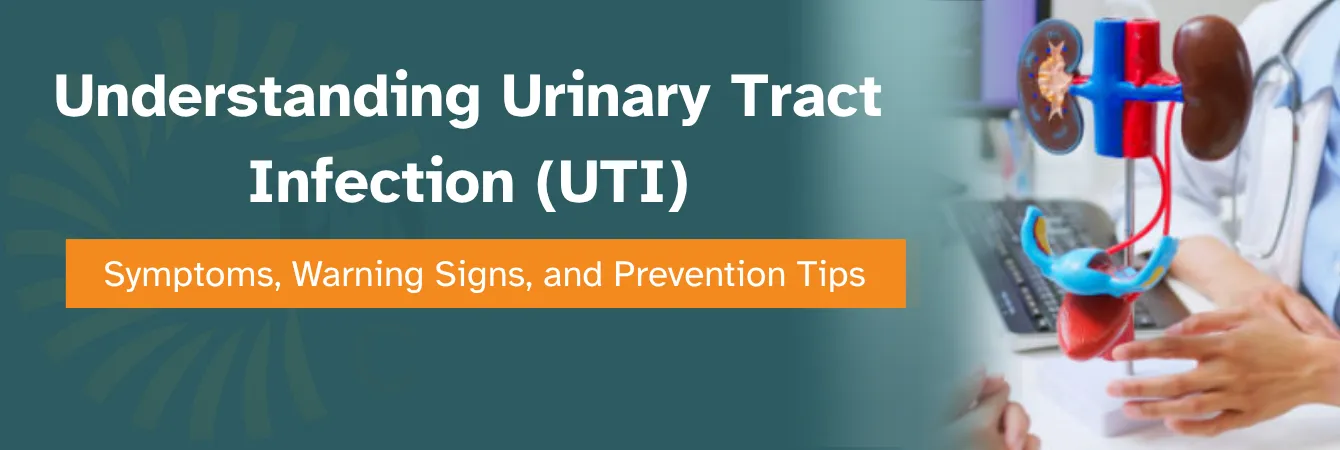Why Consulting a Nephrologist Is Essential for Your Kidney Health
- July 16, 2025
- Abrol Hospital
Your kidneys are vital organs that play a crucial role in maintaining the overall balance of your body. They regulate blood pressure, filter waste products from your blood, balance electrolytes, and aid in the production of red blood cells. Despite their importance, kidneys often go unnoticed until something goes wrong. Most kidney diseases are silent killers, progressing slowly with few symptoms until they are advanced. By the time many people seek help, the damage may already be significant. That’s why early consultation with a nephrologist can make all the difference. Being proactive in your kidney care not only improves your health but can also help prevent life-altering complications.
Who Is a Nephrologist?
A nephrologist is a medical doctor who specializes in diagnosing and treating kidney-related conditions. After completing medical school and internal medicine training, nephrologists undergo additional specialized education focused solely on kidney health. Their expertise goes far beyond what general physicians or urologists can offer when it comes to kidney diseases. While urologists focus on surgical and structural issues of the urinary tract (like kidney stones or bladder issues), nephrologists are experts in managing how your kidneys function and what to do when they begin to fail. They also handle complications that arise from poor kidney function, including electrolyte imbalances, bone disorders, and anemia.
Signs You Should See a Nephrologist
Chronic Fatigue and Weakness: When your kidneys are not working efficiently, toxins and waste products begin to build up in your blood. This toxic environment affects the functioning of your organs, leading to a constant feeling of tiredness, lack of energy, and weakness. Anemia, a common result of chronic kidney disease, can also cause fatigue since the kidneys are responsible for producing a hormone called erythropoietin, which stimulates red blood cell production.
Changes in Urination: The kidneys’ primary function is to filter and remove excess fluids and waste through urine. So, any change in urination patterns—whether it’s foamy urine (which indicates protein), increased frequency (especially at night), blood in the urine, or decreased output—can signal a problem. These symptoms may not be painful or dramatic initially, but they can be early indicators of kidney distress.
Swelling in Legs, Ankles, or Feet: When kidneys fail to remove excess sodium and fluid from the body, the retained water starts accumulating in the lower extremities. This causes noticeable swelling, especially around the ankles, feet, and sometimes even the face. This swelling, known as edema, is a common sign of deteriorating kidney function and should not be ignored.
High Blood Pressure: The kidneys play a major role in regulating blood pressure. If they are not functioning properly, they can contribute to or worsen hypertension. On the flip side, long-standing high blood pressure can also damage the blood vessels in the kidneys, creating a damaging cycle. A nephrologist can help you manage this condition from both ends—protecting the kidneys and regulating your pressure.
Persistent Nausea and Vomiting: Accumulated waste products in the bloodstream due to poor kidney function can affect your digestive system. This often results in a metallic taste in the mouth, persistent nausea, vomiting, and even loss of appetite. These symptoms may mimic other conditions, but when they’re persistent, a nephrologist should be consulted.
Common Kidney Conditions Treated by Nephrologists
Chronic Kidney Disease (CKD)
CKD is a long-term condition where the kidneys gradually lose function over time. It’s a progressive disease that often has no symptoms in the early stages. By the time signs become apparent, such as fatigue or swelling, the kidneys may already be significantly damaged. Nephrologists are trained to detect CKD early and slow its progression using medications, dietary adjustments, and careful monitoring.
Acute Kidney Injury (AKI)
Unlike CKD, AKI comes on suddenly. It may occur after a severe infection, major surgery, trauma, or reaction to medications. The condition is often reversible if treated quickly. Nephrologists can identify the underlying cause and create a treatment plan to restore kidney function and prevent recurrence.
Kidney Stones
While often managed by urologists if surgery is required, nephrologists help identify the metabolic causes of kidney stones. They conduct evaluations to determine why stones form and how to prevent them through dietary changes or medication, reducing the chances of recurring episodes.
Polycystic Kidney Disease (PKD)
PKD is a hereditary disorder where fluid-filled cysts grow inside the kidneys, leading to enlarged kidneys and eventually kidney failure. Nephrologists help monitor the growth of cysts, manage blood pressure, and delay kidney damage. In severe cases, they also guide patients through dialysis or transplant options.
Glomerulonephritis
This is an inflammation of the kidney’s filtering units (glomeruli) and can result from autoimmune diseases or infections. If left untreated, it can lead to CKD. Nephrologists often use immunosuppressive therapy and close monitoring to treat this condition and prevent irreversible damage.
Nephrotic Syndrome
Nephrotic syndrome is a combination of symptoms that occur when the kidneys leak too much protein into the urine. Patients may experience swelling, weight gain, and fatigue. A nephrologist can determine the cause (which might include glomerular disease) and develop a treatment strategy to manage symptoms and reduce complications.
Treatments and Management offers by Nephrologist
Medication Management: One of the primary roles of a nephrologist is to manage medications that help control underlying issues like high blood pressure, diabetes, and inflammation—conditions that can silently destroy your kidney health. They prescribe specific drugs to slow down disease progression, reduce protein loss in the urine, and manage symptoms like fluid retention or anemia. Moreover, nephrologists ensure that medications being taken for unrelated conditions are not harming the kidneys, by adjusting doses or suggesting safer alternatives.
Dialysis Preparation and Support: When kidney function drops below 10–15%, dialysis may become necessary to filter waste from the blood. Nephrologists play a pivotal role in determining when dialysis is needed, helping patients understand their options (hemodialysis or peritoneal dialysis), and preparing them emotionally and physically. They also manage the dialysis schedule, troubleshoot complications, and monitor treatment effectiveness over time. Early involvement of a nephrologist can smooth the transition into dialysis and even delay the need for it through timely interventions.
Kidney Transplant Referrals: For patients whose kidneys have permanently failed, a transplant may offer a new lease on life. Nephrologists identify transplant eligibility, refer patients to transplant centers, and manage the patient before and after the procedure. Post-transplant, they work closely with the surgical team to manage anti-rejection medications and monitor the function of the new kidney.
Lifestyle and Dietary Changes: Diet plays a crucial role in kidney health. A nephrologist collaborates with renal dietitians to help patients reduce salt, potassium, phosphorus, and protein intake as needed. They also stress lifestyle changes—like quitting smoking, controlling weight, reducing alcohol intake, and engaging in safe physical activity. These changes help alleviate stress on the kidneys and improve overall well-being.
When to See a Doctor: Consult Our Nephrologist Today
Are you experiencing unusual fatigue, swelling, or changes in urination? Do you have high blood pressure, diabetes, or a family history of kidney disease? At our clinic, our expert nephrologists provide personalized care, early detection, and effective management of all kidney-related conditions.
Don’t wait for visible symptoms to take action, Prioritize your kidney health today.

FAQs About Kidney Stones Symptoms
Early signs include fatigue, swelling in the ankles or feet, frequent urination at night, foamy urine, and high blood pressure. These symptoms may be subtle but should prompt a consultation with a nephrologist.
If you're at risk or already have kidney issues, you should see a nephrologist every 3–6 months. For preventive screening, annual visits are typically recommended if you have diabetes, hypertension, or a family history.
Absolutely. Nephrologists often work closely with endocrinologists and cardiologists to help manage diabetes and high blood pressure—two major causes of kidney disease. They fine-tune your medications, monitor for complications, and guide you on kidney-safe diets and lifestyle changes that support better blood sugar and pressure control, all while protecting your kidneys.
It’s a common myth that you should only see a nephrologist if you're already sick. The truth is, early-stage kidney disease often has no symptoms. If you have risk factors like high blood pressure, diabetes, obesity, or a family history of kidney problems, it’s essential to consult a nephrologist for baseline tests and monitoring. They can detect issues early and help prevent long-term damage, even if you currently feel fine.
No. Dialysis is one option. Kidney transplant is another. Some patients, depending on their condition, can manage with medication and lifestyle changes for years before dialysis is required.
Limit sodium, red meat, high-phosphorus foods (like processed cheese and soda), and high-potassium foods (like bananas and oranges) if advised. Always follow a nephrologist-guided dietary plan tailored to your condition.



